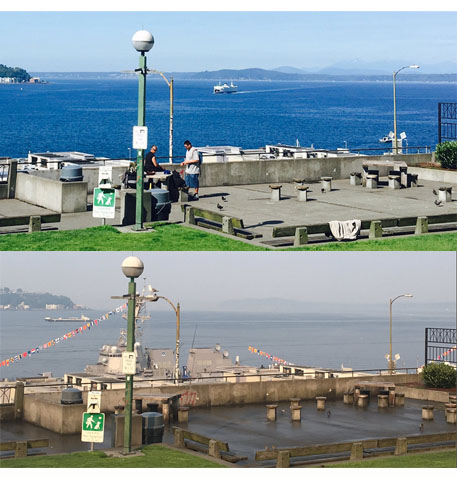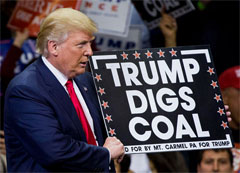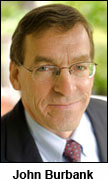OPINION
Are smoky skies a glimpse of our future?
Trump’s ‘deregulation’ of environmental protections threaten our air quality
By JOHN BURBANK
(August 9, 2017) — Watching the red sunsets this past week, and sometimes not being able to see the Olympics looking west, reminded me a bit of China.
Three years ago my wife and I took an amazing trip to Shanghai to visit my sister and brother-in-law. China is moving forward, literally, with incredible speed. We took the mag-lev train, at 250 mph, from the airport into the city. We transferred to the metro subway system, which was being built so quickly that maps of the subway from the year before did not yet include many of the new legs. Later, we traveled on bullet trains to other cities at 200 mph. Through the trains’ windows, we could see crane after crane after crane for new housing.
All this development and burgeoning prosperity had a big downside. My sister’s apartment had a view of the downtown skyline, but you couldn’t see it because the smog was so bad. The dangerous air quality meant that some days you wouldn’t want to exercise outside, for fear of damaging your lungs. We went to a beautiful national park, a lake surrounded by hills about 100 miles from Shanghai. But even there, we couldn’t see the hills.

These photos by @mjpierce8 on Twitter were taken in Seattle on Aug. 1 (top) and in the same spot two days later after the B.C. wildfire smoke settled in.
Although we in Seattle just experienced the same oppressive air I remember from China, our weather is a product of smoke from British Columbia forest fires that don’t pay much attention to international borders. We know that when those fires are out, the air will clear up, and the view will come back.
The folks in Shanghai don’t have that same reassurance that the nuisance is temporary. For them, smog is a way of life.
In the 1960s and 1970s smog was the daily accompaniment of American urban life as well. Los Angeles was a poster child for air pollution, its climate trapping fumes from chemical plants, automobiles and trash incinerators. In Seattle, we had our share as well.
Now there are hundreds of thousands more cars in our area than 50 years ago, causing a lot more air traffic. Western Washington still has a strong manufacturing sector. But where did all the smog go?
Smog is composed of carbon monoxide, nitrogen oxide, sulfur dioxide, particulates and lead. Emissions of each of these pollutants have dropped by more than half in the past fifty years, with lead emissions dropping 98 percent and particulate emissions dropping 80 percent. That improvement didn’t happen through the unencumbered free market. In fact, the workings of the free market created the pollution. While the smog had health costs for society, it didn’t affect corporations’ bottom lines, as they didn’t have to pay for these costs.
Congress, spurred on by citizen activists to protect public health and quality of life, passed several Clean Air acts, each one more specifically restraining unabated air pollution. In Washington state’s Legislature established the Department of Ecology to regulate and reduce air pollution. That’s why some of us take our vehicles for emissions tests every couple of years. That’s why our state is reducing greenhouse gases from power plants and closing down coal-fired power plants. And that’s how we enjoy having some of the cleanest air in our country.
 Now President Donald Trump wants to reduce regulation, and Environmental Protection Agency Administrator Scott Pruitt is waging war on behalf of the polluters. Breathe in deeply today to get an idea of how our air quality could change when government regulation is rolled back. Look out the window at sunset. Go for a run or bike ride and see how your throat feels.
Now President Donald Trump wants to reduce regulation, and Environmental Protection Agency Administrator Scott Pruitt is waging war on behalf of the polluters. Breathe in deeply today to get an idea of how our air quality could change when government regulation is rolled back. Look out the window at sunset. Go for a run or bike ride and see how your throat feels.
Trump says he wants to reduce government regulation to encourage innovation, but the opposite actually happens. When lead was banned in car exhaust, inventors created catalytic converters that turned unburnt fuel into carbon dioxide and water. These devices then spread to mining operations, electrical generators, and even wood-burning stoves.
China, drowning in smog, is now the leader in solar and wind energy innovation, copying the American playbook from 50 years ago. While Trump has pulled the U.S. out of the Paris Accord, the rest of the world is moving towards renewable energy and buying Chinese technology to implement it. If we allow the Trump administration to lower regulations on fossil fuels, we are not only losing environmental gains — we’re also giving China a competitive edge.
We could just go back to living and breathing as if we are in Shanghai, but that’s hardly going to “make America great again.”

John Burbank is the executive director and founder of the Economic Opportunity Institute in Seattle. John can be reached at john@eoionline.org.





